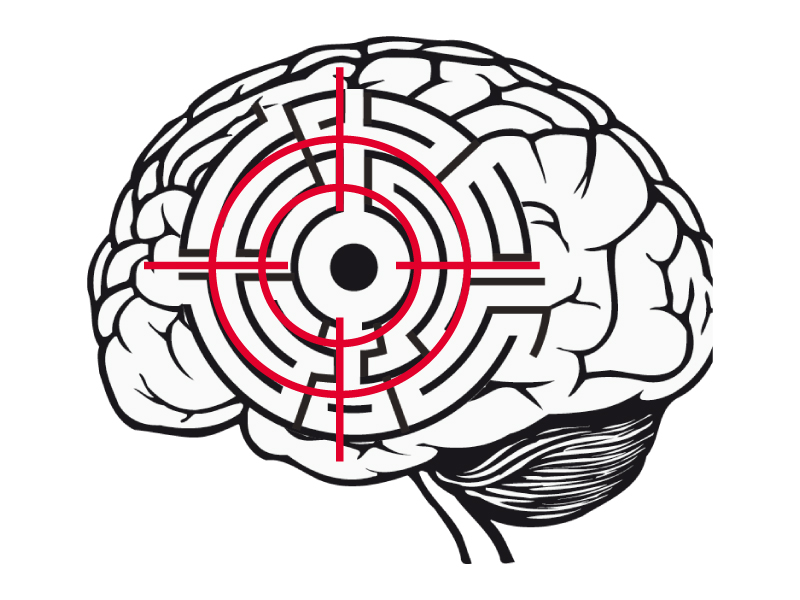
KARACHI:
The painful images on the television screen. The fear as breaking news of bomb blasts flashes across the country. The sniper shootings and target killings. The rising death toll figures. The reflex action to call your loved ones to check if they are alive and safe.
This has become part of the hustle and bustle of life. The next door neighbours may think as if nothing has happened, when actually a lot has. For Pakistanis, living in a volatile country, and especially conflict areas, the impact is not always immediately visible. Those who go through or look at the bloody scenes may not have a missing limb or face cuts and body bruises but their wounds on their psyche are deeper. Particularly affected are the women in conflict zones.
“I’m eternally scared. I can’t sleep,” says Shakila (name changed), a resident of Shah Faisal Colony in Karachi, who lost her husband in a random shooting near her home. “Women complain about stress, anxiety and fatigue when they come in,” says Dr Salman Kazim, medical director of Karwan-e-Hayat, a non-governmental welfare organisation. “As much as 80 percent of the time these women are suffering from a combination of post-traumatic stress disorder (PTSD) and clinical depression.”
PTSD is a severe condition that may develop after a person is exposed to traumatic events, such as sexual assault, serious injury or the threat of death, while clinical depression is a constant sense of hopelessness and despair.
“Given the cultural background, the reaction of women in conflict zones in particular is to disassociate themselves,” said Dr Kazim, adding that disassociation is a psychological defence mechanism that allows them to cope by involving themselves in house chores or getting busy elsewhere.
“People in conflict zones get desensitised to the atrocities that happen around them,” says Anees Hakim of Therapy Works. “Traumatic memories can manifest as flashbacks, panic attacks and somatic symptoms.”
“When a woman who is the central figure in a household is mentally unwell, the biggest impact is on her children. Often, their nutrition, health, hygiene and education are neglected, which can also lead to depression and anxiety symptoms in the children as well,” says Dr Uzma Ambreen, psychiatrist at Pakistan Association of Mental Health (PAMH).
How to heal
While Dr Kazim assures that depression and some patients of PTSD can be treated with medication and counseling, not everyone is willing to get treated. Karachi Mental Health Report (KMHR) 2012 states that while between 60 to 80% of mental disorders are effectively treated, only 25 per cent of all the patients seek treatment, and even less than that are women. Dr Kazim says that sometimes the solution is to change the patient’s environment.
“PTSD patients can be successfully treated depending on their personality skills, but a rule of one-third applies,” says Dr Kazim. “One-third of PTSD patients get better, one-third stay the same and one-third get worse.” The patients that get worse are generally those that have been sexually assaulted, gang-raped or have been victims of war.
Since most women are unable to understand and accept their mental health disorder, it is usually close family members who seek help for them. “Almost all the patients that come don’t know that they have a mental disorder,” says Alizeh Valjee, manager of the rehabilitation department at Karwan-e-Hayat. “They are reluctant to get any kind of treatment.”
Accessibility, cost, awareness and social stigmas are some of the reasons why patients of mental disorders are not being managed properly. It is not only the mental health of women that is being affected, but the generations that will follow will also be damaged. “A rapid resolution of political conflicts is necessary,” says Dr Ambareen.
According to Karwan-e-Hayat, an estimated 15 million people suffer from some form of mental illness in Pakistan, out of which two million are in Karachi alone.
October 13, 2013 is World Mental Health Day.
The Sindh Mental Health Ordinance, 2013, was signed by the governor earlier this year. All the amendments suggested by PAMH were included.
Sindh is the only province which has a law governing mental health issues.
Published in The Express Tribune, October 10th, 2013.



































































COMMENTS
Comments are moderated and generally will be posted if they are on-topic and not abusive.
For more information, please see our Comments FAQ